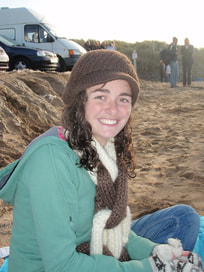 Emma Foster, along with colleagues from the University of Exeter and Center for Whale Research, has found evidence to suggest that prolonged life after reproduction in female orcas may have evolved so that they can continue to care for their older offspring, particularly their adult sons. We were lucky enough to get a chance to speak with Emma about her work researching the orca menopause. -------------------------------------------------------------------------- Sam: Can you tell us a little bit about yourself Emma? Emma: I have been brought up on and around the sea and marine biology has always been a massive part of my life. I studied Marine biology at the University of Plymouth, U.K.. After completing my degree I was offered a summer job with the Center for Whale Research, U.S.A. looking after volunteers, teaching them about whales and collecting data. I then obtained my M.Sc. in Marine mammal science from the University of Wales, where my main focus was the social dynamics of the southern resident killer whales. After that, I worked at the Center again, I also worked in New Zealand with the Dusky dolphins and Sperm whales, and I worked for the British Antarctic Survey. Finally I decided to go back to University and get my PhD. 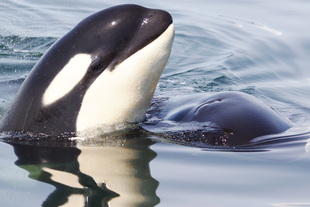 Photo: Emma Foster / CWR Photo: Emma Foster / CWR Sam: How did you end up going from being a student at Exeter University to working with the Center for Whale Research in Washington State, and conducting a study on orcas? Emma: I already had the collaboration with the Center set up and a good idea of the project I wanted to do. Sam: Where did the research idea come from? Emma: I had studied the social networks of the killer whales as part of my M.Sc. and this was a good point to start from for my PhD. It has long been known that female killer whales have a prolonged post reproductive lifespan, which is highly unusual (in addition to killer whales only humans and pilot whales seem to go through menopause). We wanted to explore why this long lifespan after menopause existed. Sam: How long has the project taken you? Emma: We spent about 18 months analyzing the data and writing the paper for Science. However, the study was based on 4 decades of data which have been collected by both permanent staff and hundreds of volunteers. It has been a huge collaborative effort. 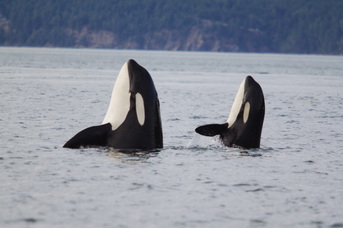 Photo: Emma Foster / CWR Photo: Emma Foster / CWR Sam: Were you surprised by your findings? Emma: There has been anecdotal evidence of this for a while, and we wanted to test this empirically. However, we were surprised by the magnitude of our findings. Our research shows that, for a male over 30, the death of his mother means an almost 14-fold-increase in the likelihood of his death within the following year, which is not seen to nearly the same extent in daughters! Sam: What do your findings mean in the wider context of orca ecology? Emma: The menopause remains one of nature’s great mysteries. This research, which involved studying 36 years worth of data, is the first ever study of its kind and is an exciting breakthrough in our understanding of the evolution of the menopause. 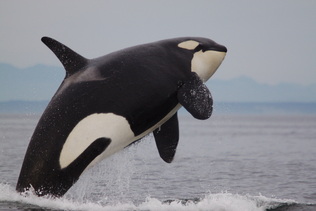 Photo: Emma Foster / CWR Photo: Emma Foster / CWR Sam: What advice would you give to aspiring orca researchers and particularly who are based in the UK? Emma: It is highly competitive, so you need to be very persistent. Make sure you get as much volunteer experience as you can – that is invaluable. It is definitely a tricky career path but not an impossible one! Thank you for the time you have taken to talk to us Emma! You can find Emma’s research paper here and you can read more about the study here.
1 Comment
|
AuthorSam Lipman Interviews |

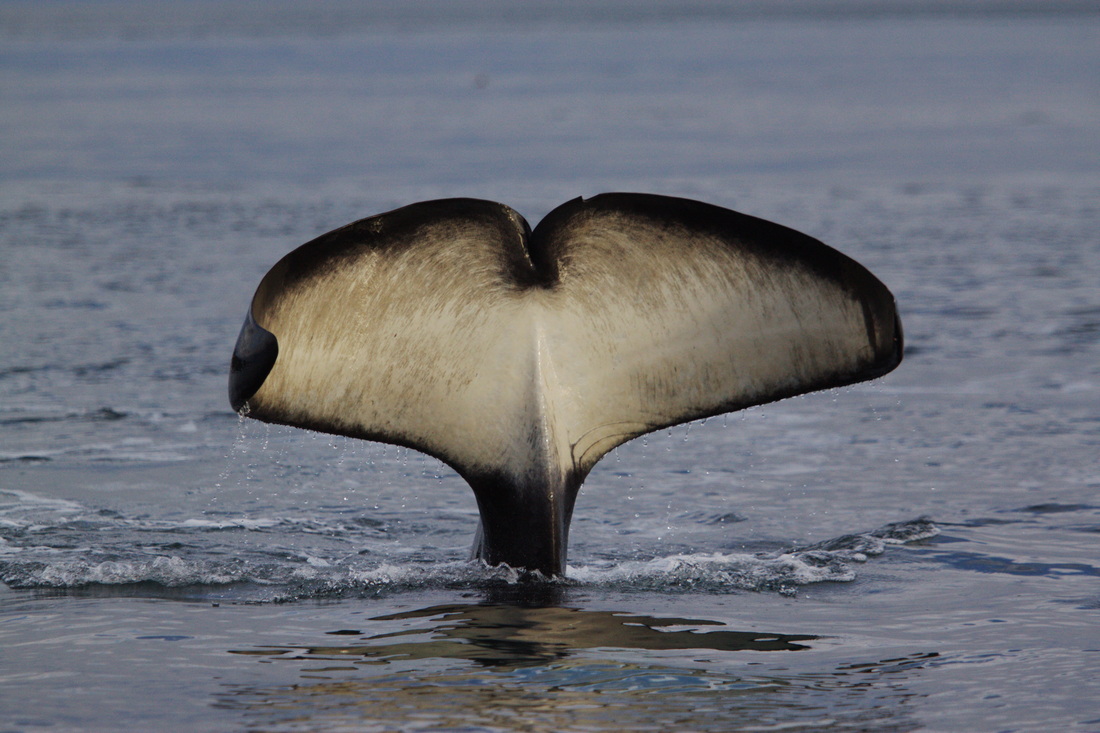
 RSS Feed
RSS Feed
